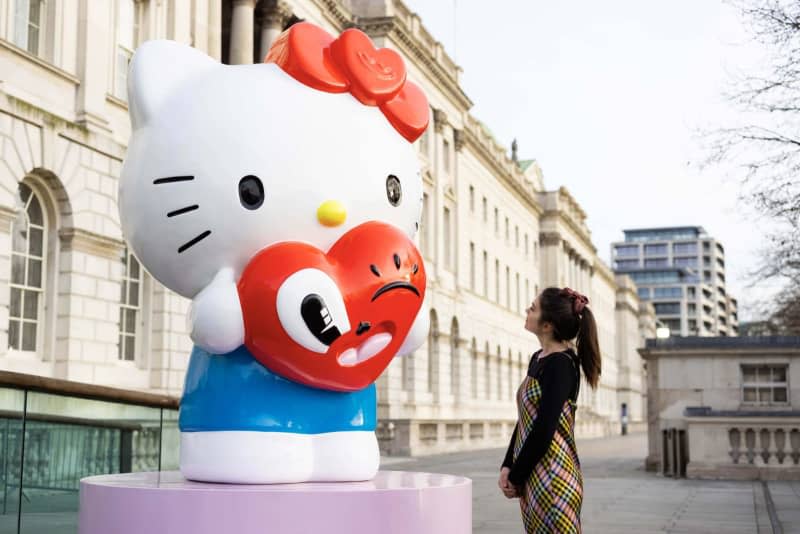London museum explores the power of cuteness - and its darker side

From emojis to memes, video games to cuddly toys, food to clothing, it sometimes feels like cuteness has taken over our world.
But what is it that has made the world embrace cute culture, asks a museum in London that is hosting the first major exhibition about cuteness, its roots and complex emotive power.
"How has something so charming and seemingly harmless – adorable, doe-eyed animals, chubby-cheeked babies, flowers, hearts, stars, sweets and other such romantic motifs – gained such traction?" the show asks.
The internet may seem like the source of most cuteness, but its roots are actually in the 19th century, when a cult around childhood developed amid falling infant mortality and declining birth rates.
Animals are also caught up in cute culture, seen more and more as pets instead of just livestock.
To mark the 50th anniversary of Hello Kitty, the exhibition has a dedicated plushie space, disco and show of various models of the Japanese anthropomorphized cat through the years. Visitors can also find out more about the Japanese "kawaii" aesthetic, familiar to many from manga.
The show does not shy away from the darker side of cuteness, which is often used to manipulate people and evoke loving feelings. The "awwww" factor transforms consumers, making them as goggle-eyed as the objects they desire.
Political ideologies and industrial corporations also use cuteness as a tool of manipulation, the exhibition shows.
The "Cute" exhibition, featuring works by over 50 artists and contributors, runs in central London's Somerset House until mid-April and entry costs £18.50 ($23.50) per person.

